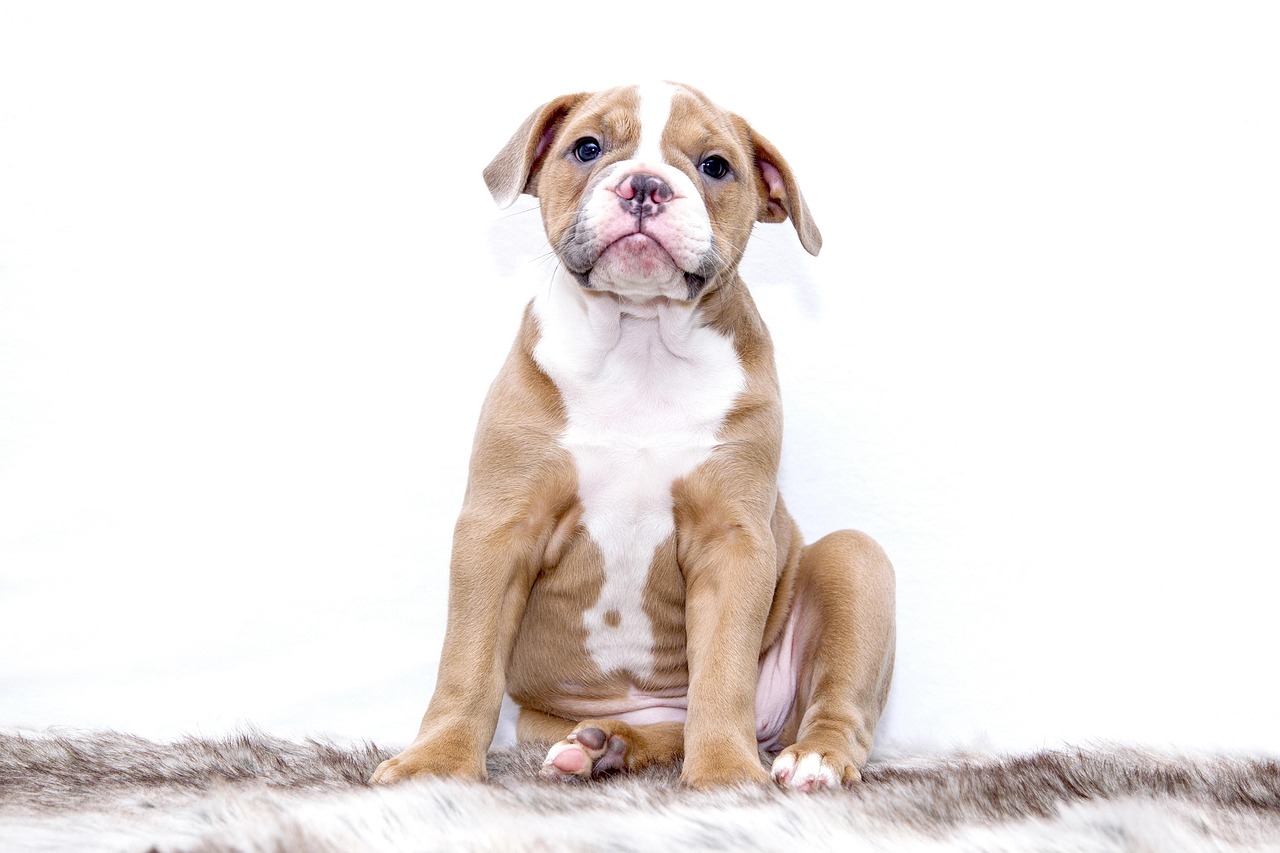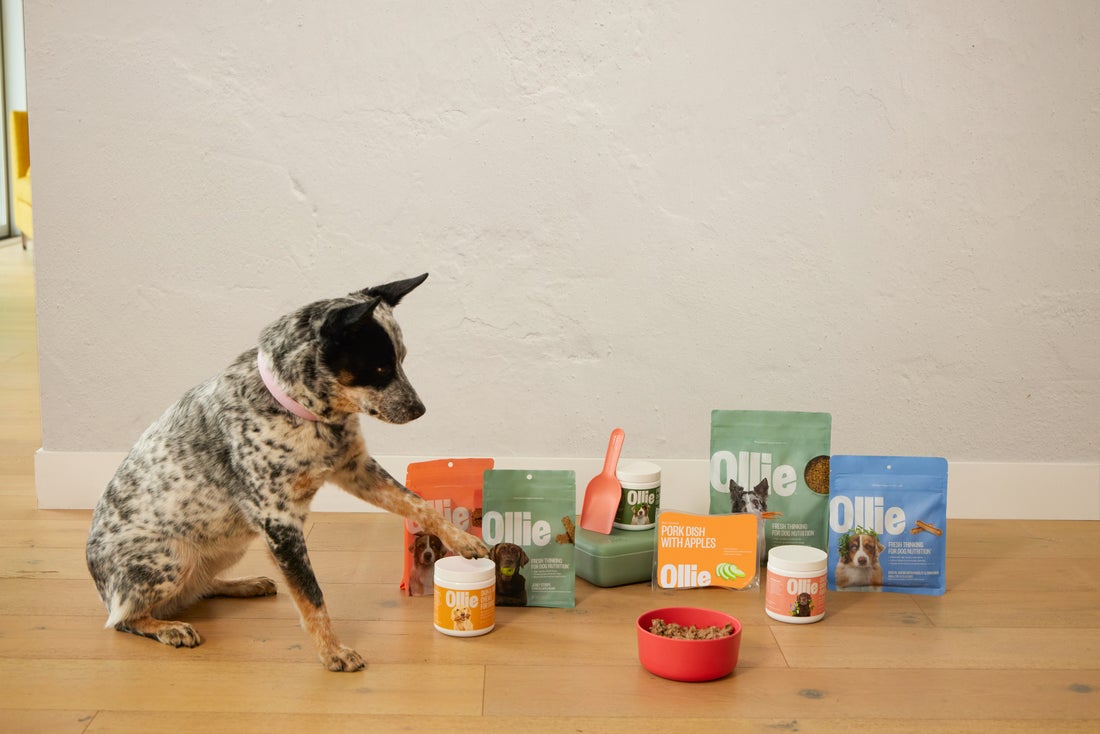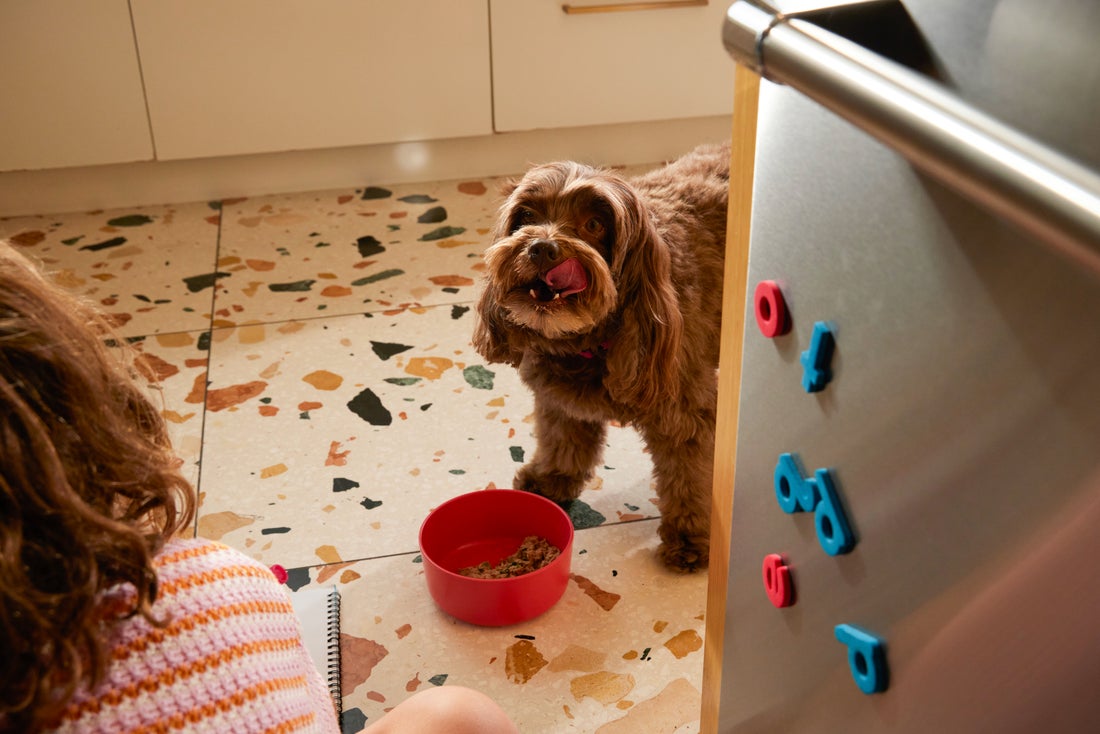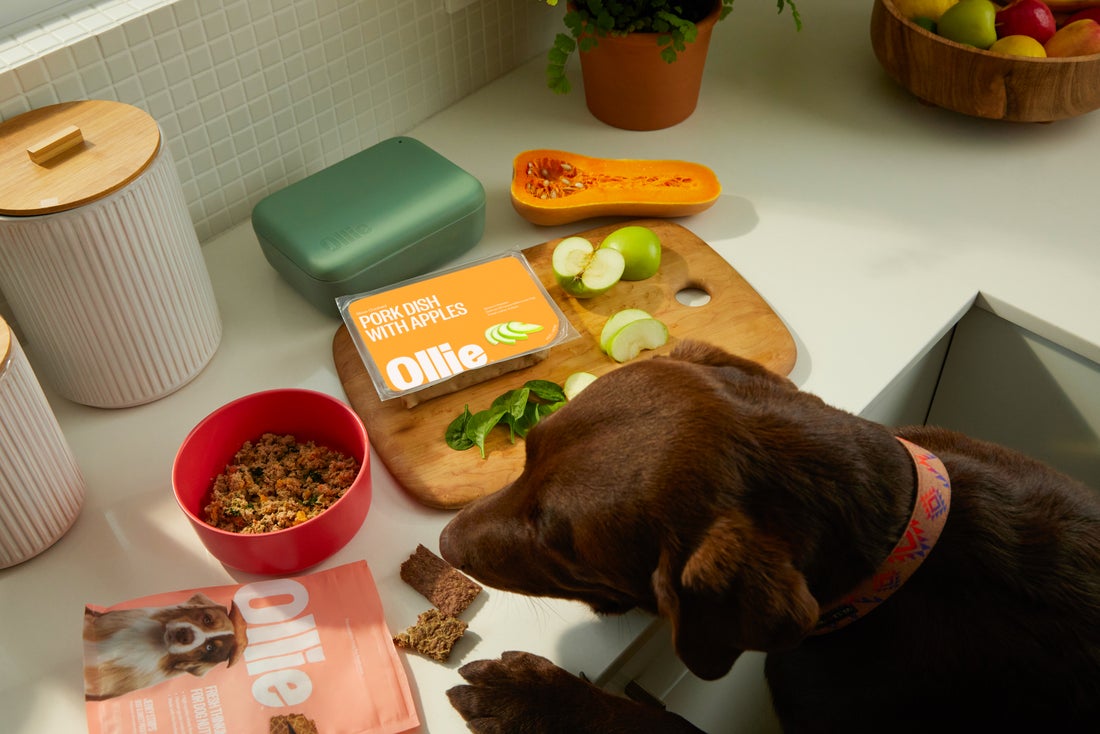Hey Ollie blog readers! We’re offering you an exclusive 60% OFF your starter box! Try now!
It’s normal for puppies to scratch here and there — they’re growing fast, exploring every corner, and adjusting to a brand new world. But if you keep catching your puppy nibbling their paws, rolling around for a belly scratch, or dragging a back foot across the carpet every five minutes, you’re probably wondering, why is my puppy so itchy?
A little itching is part of puppy life, but too much can mean something’s irritating their sensitive skin. Fleas, dry air, new foods, or even leftover shampoo can all lead to extra scratching, especially in young pups with soft coats and delicate skin.
The good news? Most itchy puppy problems have simple fixes. From gentle baths to a diet that supports healthy skin, a few smart steps can help your puppy feel better — and help you stress less about all that scratching.
One thing many new puppy parents overlook is how much food can affect a dog’s skin. A diet made with real, gently cooked ingredients — like Ollie human grade dog food — can help keep your pup’s belly and skin happy while they grow.
In this guide, you’ll learn what normal puppy itching looks like, when to worry, easy home remedies, and when it’s time to call the vet for your scratching sidekick.
What’s Normal Puppy Itching vs What’s Not?
A little scratching is just part of being a puppy. New fur is coming in, they’re exploring the yard, and tiny itches pop up, that’s normal. But how do you tell what’s harmless and what needs a closer look?
What’s Normal
- Occasional Scratching: A few scratches a day, especially after playing outside or rolling on the rug.
- Short Paw Licks: Puppies groom themselves. A quick lick here and there is fine.
- Mild Dandruff: Some puppies get a bit of dry skin as they adjust to new homes or climates.
What’s Not Normal
- Constant Scratching: If your puppy’s itching keeps interrupting naps or playtime, it’s a sign something’s not right.
- Red or Raw Spots: Hair loss, redness, or sores from too much scratching need attention.
- Chewing Paws Nonstop: Many puppies with allergies or parasites chew between their toes until the skin is irritated.
- Visible Fleas or Bites: Small black specks or tiny bugs mean fleas could be the cause.
- 8-Week-Old Puppies & Itching: If your new pup is only 8 weeks old and scratching a lot, it’s best to get your vet’s input. Young puppies have especially delicate skin, and some conditions can escalate quickly.
If your puppy’s scratching fits the “not normal” box, don’t panic. Most causes are easy to fix with some simple home steps or a quick check from your vet. And remember, what they eat plays a big role too. A fresh, balanced diet like Ollie human grade food can help sensitive skin feel its best as your pup grows.
Why Is My Puppy So Itchy? (Most Common Causes)
Once you know your puppy’s scratching is more than just a quick wiggle, it’s time to figure out what’s behind it. Puppies can be sensitive little creatures, their skin and fur are still developing, so even small things can make them itchy.
Here are the biggest reasons your puppy might be scratching more than usual.
- Fleas & Parasites
One of the most common causes for puppy itching is fleas. Even indoor puppies can pick up fleas from other pets, bedding, or your yard. If you see tiny black specks (flea dirt) or tiny bugs moving in their fur, fleas are likely the culprit.
- Dry Skin
Puppies can get dry skin from too many baths, cold weather, or dry indoor air. If you notice flakiness or mild dandruff, dry skin might be the reason for all that scratching.
- Allergies
Yes, even young puppies can show early signs of allergies. These might be environmental (like grass or pollen) or food-related. Itchy paws, red bellies, or ear scratching can be early signs of puppy paw allergies too.
- Puppy Dandruff
It’s common for new puppies to shed some flaky skin as they adjust to a new environment, food, or climate. Mild puppy dandruff usually goes away with better nutrition and gentle care.
- Skin Infections or Mites
If your puppy’s scratching comes with hair loss, redness, or scabs, they could have a mild skin infection or mites. These need quick vet care to clear up properly.
Most causes of an itchy puppy are simple to treat once you know what you’re dealing with. In the next section, we’ll break down gentle home remedies you can try to soothe your puppy’s skin fast.
- Emotional Triggers: Boredom or Adjustment Stress
Not every itch comes from the skin. Some puppies scratch, lick, or nibble at themselves out of boredom, anxiety, or even overstimulation. It’s their way of self-soothing or burning off nervous energy — especially if they’re still getting used to a new home, routine, or being left alone.
If your puppy is otherwise healthy but tends to scratch more when they’re alone or after a busy day, think about their emotional environment too. Puzzle toys, gentle play, and a predictable schedule can help reduce stress-based scratching.
Puppy Safe Home Remedies for Itchy Skin
If your puppy’s scratching is mild and there’s no sign of a bigger problem, you can try a few safe home steps to calm the itch and help their sensitive skin heal.
Brush Regularly
A gentle brush removes loose fur, dead skin, and anything that might be stuck in your puppy’s coat. Use a soft brush designed for puppies, this keeps scratching from turning into tangled fur and skin irritation.
Give a Gentle Oatmeal Bath
A warm (not hot) bath with plain, unscented oatmeal can help soothe dry, itchy skin. Just be sure to rinse your puppy well and dry them completely to avoid extra moisture on the skin.
Wipe Paws After Playtime
If your puppy plays outside, wiping their paws can help remove pollen, grass, or other irritants that might be causing mild puppy itching.
Keep Fleas Under Control
Talk to your vet about safe flea prevention for puppies. Many flea products are too strong for young pups, so always check what’s safe for their age and weight.
Use a Humidifier
If your house has dry air, especially in winter, a small humidifier can help keep your puppy’s skin from drying out too much.
Feed for Healthy Skin
Healthy skin starts in the bowl. Puppies need good fats and balanced nutrients to grow a strong coat. Many owners see less scratching when they switch from filler-heavy kibble to fresh, gently cooked food like Ollie puppy meals, which support healthy skin and digestion naturally.
Most mild puppy itching clears up with a little extra care and a few smart tweaks. If your puppy keeps scratching no matter what you try, it’s time to dig deeper.
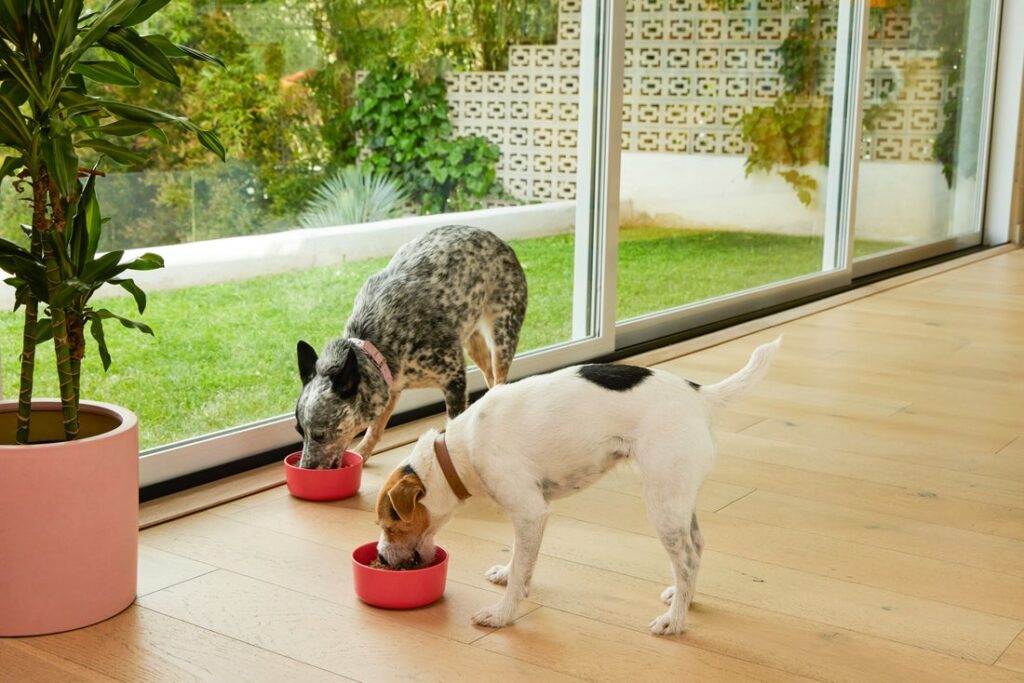
How Diet Plays a Role in Puppy Itching
A lot of new puppy parents don’t realize that what goes in the bowl can show up on the skin. Food sensitivities or low-quality ingredients can make your puppy’s skin dry, flaky, or itchy, sometimes before you see any other signs. If food seems like a trigger, your vet might suggest an elimination diet to identify what’s causing the reaction.
Common Puppy Food Triggers
Some puppies are sensitive to common ingredients like chicken, beef, wheat, or soy, all of which show up a lot in cheap puppy kibble. Fillers and artificial additives can also bother a puppy’s delicate system and make puppy scratching worse.
Why Fresh Food Helps
Fresh, gently cooked meals use real, simple ingredients your puppy’s body can actually use. Whole proteins, real veggies, and healthy fats help nourish your puppy’s skin and coat from the inside out.
If you think food might be behind your itchy puppy constant scratching, talk to your vet about whether an elimination diet makes sense. Sometimes just cleaning up what’s in the bowl can do more than any bath or balm. If food is the cause, it may take a few weeks of consistent feeding to see the full benefits — so don’t worry if the change isn’t instant.
Many new puppy parents switch to Ollie fresh puppy recipes because they’re made without harsh fillers or mystery ingredients, just real food for a healthy belly and itch-free skin as your puppy grows.
When to Call the Vet
Most mild puppy itching goes away with simple changes, but sometimes scratching is your puppy’s way of telling you they need more help.
Here’s when it’s smart to pick up the phone and check in with your vet:
Itching That Won’t Stop
If your puppy’s scratching keeps you up at night or they’re licking and chewing their paws nonstop, it’s time for a closer look.
Red, Raw, or Bleeding Spots
Too much scratching can turn into hot spots, open sores, or scabs that need proper treatment to heal safely.
Visible Fleas or Worms
If you spot fleas crawling around, flea dirt in their fur, or signs of worms in their poop, your vet can recommend safe, puppy-approved treatments.
Swelling or Infections
Any swelling, bad smell, or pus around scratched areas is a sign of an infection that needs medication, not just a home remedy.
For Tiny Puppies
Very young pups, like an 8-week-old puppy scratching a lot, should always be checked sooner rather than later. Their skin is extra delicate, and some parasites or infections can get worse fast in small puppies.
Your vet can help figure out what’s causing the itch, treat any infections, and help you decide if a food change or special shampoo will help.
Tips to Prevent Puppy Itching
Most puppy scratching is easy to handle once you know what’s causing it, but keeping it from coming back is even better. A few small habits can help your puppy grow healthy skin and stay comfortable as they get bigger.
Keep Baths Gentle and Infrequent
Too many baths can dry out your puppy’s skin. Use a mild, puppy-safe shampoo and rinse well. If your puppy has dandruff, an occasional oatmeal bath can help soothe their skin.
Brush Regularly
Brushing helps get rid of loose fur, dirt, and pollen that can irritate your puppy’s skin. It also helps spread natural oils that keep their coat soft and healthy.
Wash Bedding Often
A clean bed means fewer fleas, dust mites, and irritants that could bother sensitive puppy skin.
Stay on Top of Parasite Prevention
Talk to your vet about safe flea and tick prevention for young pups. Even indoor puppies can pick up fleas from other pets or visitors.
Feed Good Food from the Start
Healthy skin starts inside. A diet with real protein, balanced fats, and gentle ingredients, like Ollie fresh puppy meals, gives your puppy’s skin and coat what they need to grow strong and itch-free.
Itching is normal sometimes, but constant scratching doesn’t have to be your puppy’s ‘new normal.’ With a little detective work, the right care routine, and a diet that supports their growing skin and coat, most puppies feel better fast — and you’ll both rest easier.
FAQs About Itchy Puppies
Why is my puppy so itchy but has no fleas?
Fleas are common, but they’re not the only reason puppies scratch. Dry air, too many baths, mild allergies, or leftover shampoo can all make a puppy itchy even if you never see a bug.
Why is my 8-week-old puppy scratching a lot?
Tiny puppies can pick up fleas easily, even indoors. They can also get dry skin as they adjust to new food, bedding, or home temperatures. If you have an 8-week-old puppy scratching a lot, check for fleas or dry patches and call your vet if you’re worried.
What’s the best home remedy for a puppy’s itchy skin?
A gentle oatmeal bath, regular brushing, and wiping paws after outside time are good starters. Make sure your puppy is eating balanced food too, fresh meals like Ollie recipes help support healthy skin from the inside out.
Can food make my puppy itch?
Yes! Some puppies react to common ingredients like chicken, beef, or fillers in cheap kibble. If scratching comes with soft stools, ear gunk, or red paws, food could be the cause.
When should I take my puppy to the vet for itching?
If your puppy has raw skin, scabs, swelling, a bad smell, or scratching that just won’t stop, get help. Puppies have sensitive skin that can go from mild to infected fast if it’s not treated.
Support Healthy Skin from the Start
Puppies have sensitive skin, growing immune systems, and big needs in a small package. A fresh, balanced diet made with real ingredients — like Ollie gently cooked meals — can help keep their bellies happy and their skin calm as they grow.
Many new pet parents see fewer itches and a shinier coat when they ditch processed kibble and start with real food.
Ready to give your puppy the best start? Try Ollie today — because comfort starts in the bowl.
Tagged As:

The nutrition your dog needs,
the food they want.

Enjoying our articles? Subscribe our Newsletters and get new articles directly to your inbox
You might also like
18 July 2025
6 MINS READ
Can You Mix Fresh Dog Food With Kibble?
If you’re feeding your dog kibble but want to upgrade their bowl, you’re not alone. Many pet parents ask if they can mix fresh dog food with kibble to get some of the benefits of fresh food wi…
by Ollie Pets
18 July 2025
5 MINS READ
Does Fresh Dog Food Help With Weight Loss?
If you’ve noticed your dog carrying a few extra pounds, you’re not alone. According to the Association for Pet Obesity Prevention, over half of dogs in the U.S. are overweight or obese. Extra …
by Ollie Pets
18 July 2025
4 MINS READ
Is Fresh Dog Food Cooked or Raw?
When you hear “fresh dog food,” it’s normal to wonder if that means raw meat or something cooked. After all, fresh just means it’s not dry kibble or canned food packed with preservatives. …
by Ollie Pets
